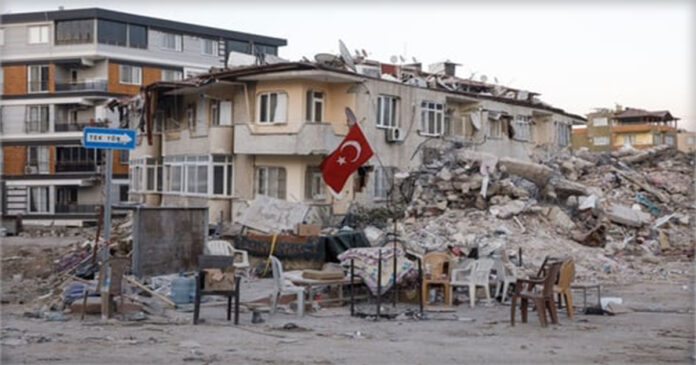Late on Monday, two weeks after the country’s deadliest earthquake in modern history left tens of thousands of people dead, a magnitude 6.3 earthquake slammed southern Turkey close to the Syrian border, causing panic and further destroying buildings.
The earthquakes, which were centred in central Antakya city, were intense and long-lasting, damaging buildings and dispersing dust into the nighttime air, according to two Reuters correspondents. According to Reuters correspondents, Egypt and Lebanon were also affected.
The tremor, according to the European Mediterranean Seismological Centre (EMSC), occurred at a shallow depth of 2 km (1.2 miles).
When ambulances raced to the earthquake-hit area close to the city centre, police officers monitored Antakya. Two people passed out while others crowded the streets near Central Park to call for help on their cell phones.
Following the most recent earthquake, Reuters observed Turkish rescue teams scouring the area on foot to check on the locals, the majority of whom were sheltering in makeshift tents following the shocks two weeks prior.
A local named Muna Al Omar claimed to have been in a tent in a park in the centre of Antakya when the earthquake struck.
She sobbed as she cradled her kid, age 7, in her arms and stated, “I thought the world was going to break under my feet.
“Will there be a second aftershock?” It was her.
Devastating Earthquakes Strike Turkey and Syria, Leaving Millions Homeless and Hundreds Dead
The two more powerful earthquakes that struck on February 6 left more than a million people homeless; they also rocked neighboring Syria and killed many more people than the most recent official death toll of 46,000 in both nations.
The area had seen a few smaller tremors in the previous two weeks, but the quake on Monday was the worst since February 6. It was quite powerful. As the earthquake hit, Burhan Abdelrahman was leaving his tent in a camp in the middle of Antakya city when he remarked, “It startled us out of our places.
I called family in Syria, Adana, Mersin, and Izmir among other places to see how they were doing.
A predicted 50-centimeter rise in sea level as a result of the earthquake prompted Turkey’s disaster management organization, AFAD, to warn locals to avoid the Mediterranean shore.

